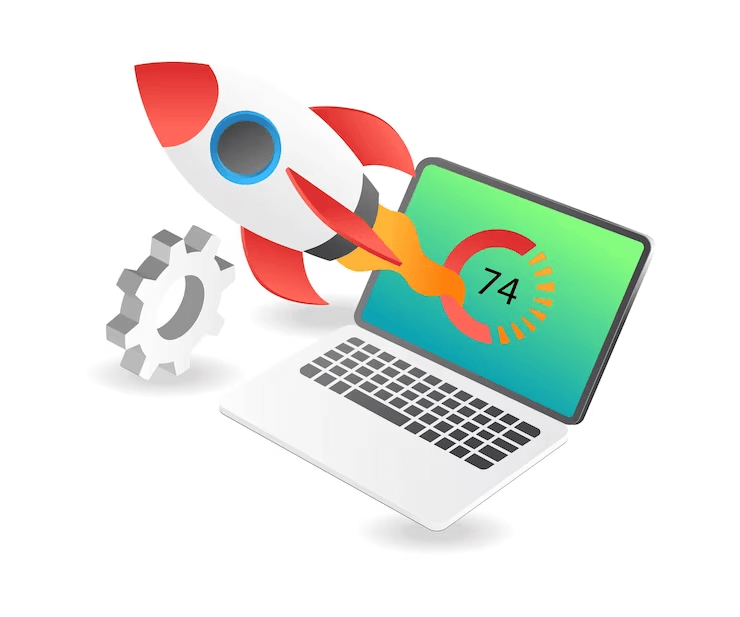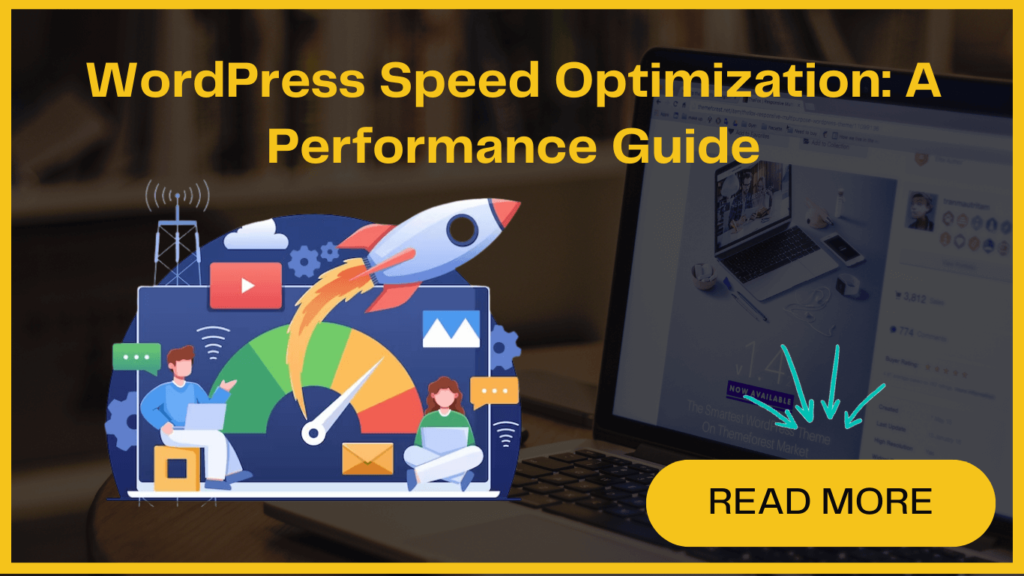
With every additional second of load time, you stand to lose 4.42% in conversions. So, if your site takes 5 seconds to load, you’re leaving over 20% of potential business on the table!
Google recommends sites load in under 2 seconds, and they’re baking page speed into search rankings. So, a lagging site means losing search traffic along with conversions. Not great for the bottom line!
Luckily, with some targeted tweaks, you can speed up WordPress website. This post shares easy tips to analyze and improve your WordPress site’s load times.
We’ll cover everything from the significance of WordPress speed to the factors that deter your WordPress site’s performance. Moreover, we’ll offer practical tips you can use right away to enhance your WordPress speed.
Why It Is Important to Speed Up WordPress Website?
For WordPress sites, that means speed is synonymous with survival.
Lagging page loads drain revenue. According to research by Aberdeen Group, one extra second of delay in page load time can cause a drop in conversions by 7%, pageviews by 11%, and satisfaction by 16%.
Now search engines like Google penalize sluggish sites by burying them in results. So, slow speed slashes organic traffic too.
A sluggish WordPress site is costing you money by driving away visitors and lowering your search rankings. In short, if you want to capture visitor attention to drive sales and boost profit, you need a lightning-fast site.
What Makes WordPress Speed Slow?
- Overloaded Hosting: An overloaded web host can be the reason for site crash. If your web server is poorly configured, it can make your website slow like a snail.
- Uncached Pages: Without caching, every page load on WordPress requires the engine to start from scratch, leading to slower server response times due to redundant work.
- Bloated Pages: Oversized, unoptimized images make pages obese. As a result, visual data gets stuck loading over slow connections.
- Poorly-Coded Plugins: Some plugins speed up your site, while others slow it down due to their inefficient programming.
- Excessive Scripts: External scripts for ads, web fonts, and tracking add extra loading time to each page, slowly slowing down your site.
WordPress Speed Optimization : Easy Tips
Improving site speed might seem intimidating at first. But with some simple, targeted optimizations, you can get your WordPress site flying in no time. We are sharing easy WordPress speed optimization tips anyone can implement to improve their WordPress site speed.
1. Images Boost Engagement But Slowdown Site Speed
Photos make content 80% more likely to be read. But unoptimized images bloat page size, dragging down site speed.
The Fix: Compress Images Without Losing Quality
Use editing software to shrink images before uploading them to WordPress. The original files from cameras and phones are unnecessarily large.
You can safely compress images 5x smaller without visible quality loss. This makes a huge impact on site speed.
Use JPEG Format for Photos and PNG Format for Graphic Elements. JPEG compression slightly reduces photo quality in exchange for much smaller files. The color loss is rarely visible. At the same time, PNGs maintain full quality for graphics like logos. But they take up more space.
2. Enable Caching for a Fast WordPress Site
Caching skips the rebuild by saving pre-made pages to serve instantly. A caching plugin can easily speed up WordPress sites 2-5x times. It’s the best free performance boost available.
Choose a Reliable Caching Plugin. For caching that works flawlessly, use WP Super Cache (free) or WP Rocket (paid). Some hosts like SiteGround and Bluehost include their own caching too. With just a few clicks, you’ll slash load times and keep visitors happy.
3. Speed Up WordPress Website With a Content Delivery Network (CDN)
The location where your web hosting server is located impacts site speeds for global visitors. Users geographically distant from servers see slower load times as data travels longer routes.
A Content Delivery Network (CDN) solves this by storing static site files in servers around the globe. When visitors access your site, files are served from the nearest CDN server. So, someone in Sydney grabs images and CSS from Australia rather than the US.
This localized delivery accelerates performance by reducing the distance data must travel. It also lightens the workload for your main hosting server with the CDN handling file transfers.
Top CDNs like Cloudflare, Sucuri, and Bunny CDN, offer free plans optimized for WordPress. Turn one on and watch your site speed up for all visitors worldwide.
4. Don't Host Large Media Files Directly on WordPress
Uploading large video and audio files to your WordPress server may seem like an easy option. But this gulps hosting bandwidth fast, draining limits quicker than you may realize.
You risk getting hit with overage fees or even having your site shut down for excessive usage. It also bloats backups substantially, complicating restores.
Instead, leverage specialized media hosting providers like YouTube, Vimeo, DailyMotion, and SoundCloud. They have the infrastructure to handle bandwidth-heavy streams while keeping your WordPress site light and lean.
Simply embed files by pasting media URLs directly into WordPress posts and pages. The built-in block editor automatically handles video embedding.
For podcasts, use Blubrry’s WordPress-tuned hosting to ensure smooth performance even with large volumes of audio.
Let media pros handle delivery while you focus on content. It saves money and prevents hosting headaches!
5. Choose Simple, Speed-Optimized Themes
Instead opt for simpler, lightweight themes optimized for performance. Top shops like StudioPress, Themify, CSSIgniter, and Astra offer fast options.
A basic design can always be enhanced later through quality plugins. But a sluggish theme is hard to speed up after the fact.
Simply embed files by pasting media URLs directly into WordPress posts and pages. The built-in block editor automatically handles video embedding
Conclusion
A fast-loading website significantly enhances user experience, which in turn can lead to increased revenue. Therefore, it’s crucial not to overlook the importance of your website’s speed. Now armed with the knowledge of how to improve WordPress site speed, you can address any lagginess and transform your website into a super-fast platform. Don’t hesitate to implement these strategies to optimize WordPress speed and elevate your site’s performance. For more help, you can reach out to us at +91-7300471483. We are just a call away!




